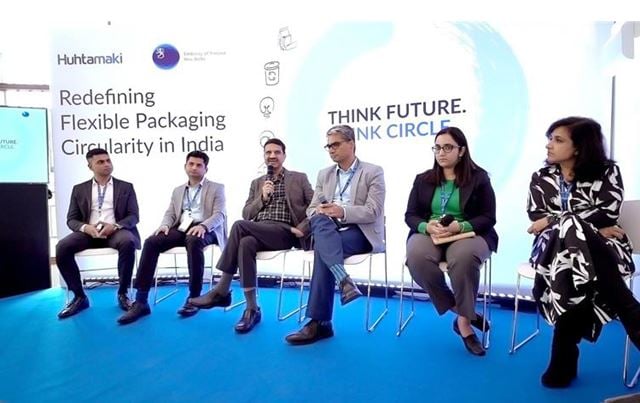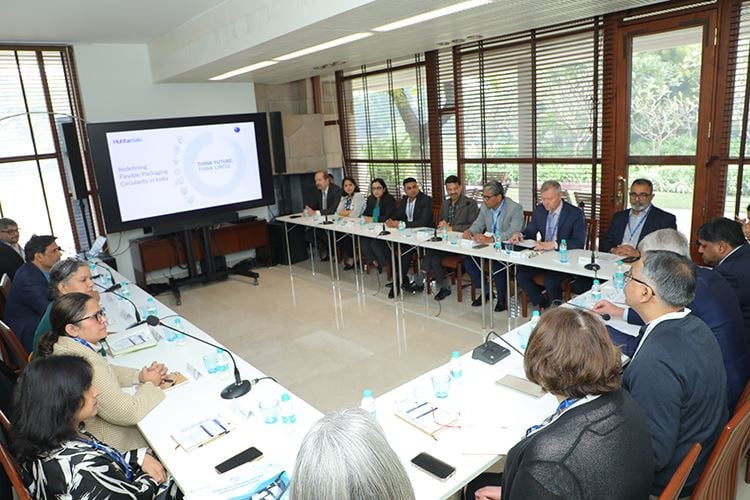
In today’s world, managing plastic waste has become a critical environmental issue, especially in India, where around 9.3 million tonnes of plastic waste is generated annually. If improperly disposed of, plastic causes severe environmental damage, requiring urgent mitigation. Meanwhile, companies that rely on plastic as a raw material struggle with limited access to recycled plastic resins - materials crucial for organizations like Huhtamaki in their transition towards increased use of recycled plastics.
Currently, the global recycling rate of plastic waste is alarmingly low. In India, only 8% of plastic waste undergoes recycling. While informal recycling channels contribute significantly to this figure, there is an urgent need to develop more formalized infrastructure to enhance plastic waste management. By establishing proper recycling channels and supporting infrastructure, it is possible to retain more plastic in circulation and reduce its environmental impact. Companies like Huhtamaki play a crucial role in this effort by transforming recycled plastic waste into valuable new products. We need to scale up recycling rates to ensure the market can provide a sufficient amount of recycled resins for us to use as raw material.
Huhtamaki Driving Circularity in Flexible Packaging
With over 70% of plastic packaging in India being flexible, and a significant portion of this being multi-layered, recycling and collection rates remain a major concern. To drive progress in this area, Huhtamaki’s Think Circle initiative in January 2025 brought together industry leaders, government bodies, academics, NGOs, and think tanks to collaborate on redefining circularity of flexible packaging.
The event focused on finding practical solutions to improve the recycling and circularity of flexible plastic packaging, with an emphasis on creating recyclable solutions suited to the Indian market. During an exclusive closed-door roundtable, stakeholders, including MoEF&CC representatives, discussed both the challenges and opportunities around recycling in India. The event also featured a presentation on "Design for Recyclability of Films and Flexible Packaging Guidelines" by CII-IPP, providing key insights for improving the recyclability of flexible packaging.
Huhtamaki is dedicated to designing packaging that is not only sustainable but also recyclable. Through collaboration, businesses and individuals can make a real difference in reducing the use of virgin plastic and preventing plastic waste. The Think Circle India roundtable was just the beginning of this journey, and we continue to work together to advance recycling and circularity in India.
Looking Ahead to SEA and Beyond
Building on the momentum in India, we are excited to expand the Think Circle initiative to the Southeast Asia (SEA) region. The upcoming Think Circles in SEA will use the insights gained from India to engage with regional stakeholders and tackle challenges in the packaging value chain. By growing these efforts, we aim to influence policy, improve recycling infrastructure, and support circularity across the regions we operate in.

